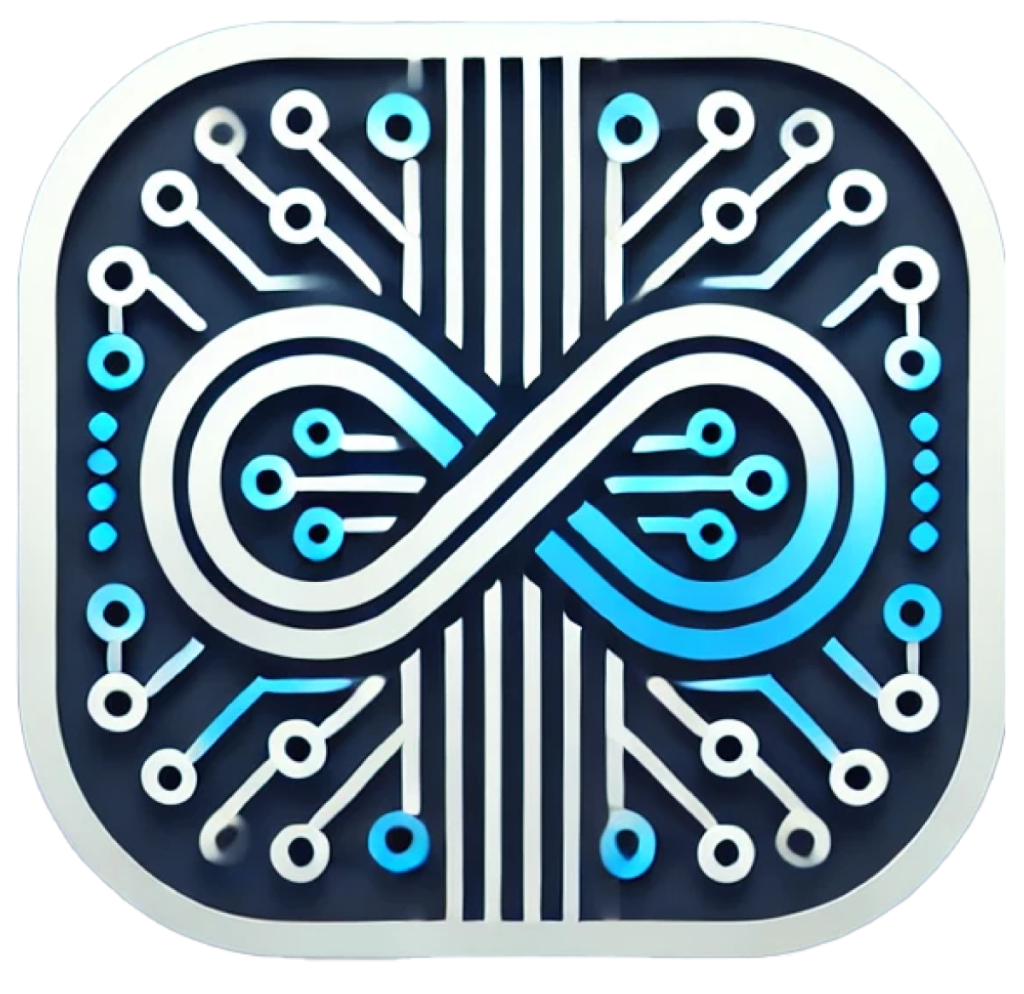Cognitive flexibility is imperative for adapting to new situations and overcoming challenges in your daily life. In this post, you will explore how motivation assessment tools can significantly impact your cognitive flexibility by identifying your intrinsic drivers and aligning them with your goals. By understanding your motivational profile, you can enhance your ability to pivot and adjust your thought processes, ultimately leading to better decision-making and problem-solving skills. Discover how these tools can empower you to navigate complex tasks and foster a more resilient mindset.
Understanding Motivation Assessment Tools
While exploring the landscape of cognitive flexibility, it’s vital to grasp the significance of motivation assessment tools that can influence your decision-making and adaptability. These tools serve as a compass, guiding you in recognizing your intrinsic drivers and external influences. They can help you identify the various factors that fuel your passion and commitment, shedding light on areas where you may need to cultivate additional motivation to enhance your cognitive agility. The interplay between motivation and cognitive flexibility is vital, as a well-motivated individual tends to navigate challenges with greater ease and creativity.
Definition and Purpose
Definition: Motivation assessment tools are instruments designed to evaluate the underlying factors that drive your behavior, interests, and perseverance. These tools can be surveys, questionnaires, or assessments that quantify your motivation levels across different contexts. The purpose of utilizing these tools is not only to unveil your current motivational landscape but also to provide insights into how you can enhance your drive for various tasks or projects. By understanding your motivational triggers, you can tailor your strategies to foster better outcomes in both personal and professional spheres.
Types of Tools Available
Various types of motivation assessment tools are available, each catering to different aspects of your motivation. Common categories include self-report questionnaires, observational assessments, and qualitative interviews, all aiming to deliver a comprehensive understanding of your motivational profile. Below is a table summarizing some key tools and their characteristics:
| Tool Type | Characteristics |
|---|---|
| Self-report questionnaires | Personal reflection to assess intrinsic and extrinsic motivators. |
| Behavioral assessments | Observation of actions in various environments to gauge motivation. |
| Qualitative interviews | In-depth discussions to explore deeper motivational drivers. |
| Motivational workshops | Group format to engage in collaborative exploration of motivation. |
| Digital platforms | Online tools that offer motivation assessments and feedback. |
Consequently, integrating these tools into your routine can significantly enhance your understanding of your motivational triggers. Engaging with motivation assessment tools allows you to align your internal motivations with your goals, ultimately leading to improved cognitive flexibility. When you are clear on what drives you, adjusting to new ideas and challenges becomes easier. The following list illustrates additional tools that you may find beneficial:
- Goal-setting frameworks
- Motivational interviewing
- Strengths assessments
- Focus groups
- Mental exercises and challenges
After utilizing these tools, you can develop strategies to harness your motivations effectively, leading to enhanced cognitive adaptability and resilience in facing various challenges.
The Concept of Cognitive Flexibility
There’s a growing recognition of cognitive flexibility as a fundamental component of effective thinking and problem-solving. This term refers to your ability to adapt your thinking and behavior in response to new, changing, or unexpected situations. Cognitive flexibility allows you to switch between tasks, consider multiple perspectives, and engage in creative thinking, which is increasingly important in today’s rapidly evolving world. By enhancing your cognitive flexibility, you can improve your capacity to learn, make decisions, and respond to challenges in a dynamic environment.
Definition and Importance
Before delving deeper into the topic, it’s vital to define what cognitive flexibility entails. Essentially, it’s the mental skill that enables you to shift your thoughts from one concept to another and to think about multiple concepts simultaneously. This adaptability is vital, as it helps you navigate complexities in daily life, whether that’s in your professional environment or personal relationships. Ultimately, enhancing your cognitive flexibility can significantly improve your overall functioning and productivity.
Factors Influencing Cognitive Flexibility
Any discussion of cognitive flexibility must include the various factors that influence it. These can range from individual differences in personality traits to environmental factors and social contexts. Key influences on your cognitive flexibility include:
- Your age, as cognitive flexibility can fluctuate throughout different stages of life.
- The complexity of tasks you engage in, where more complex tasks can enhance flexibility.
- Your level of stress, as high stress can impair cognitive flexibility.
- Previous experiences, which shape how you approach new situations.
Assume that you’re experiencing a period of low cognitive flexibility; understanding these components can offer insight into how to enhance your adaptability.
The intertwined nature of these factors plays a significant role in shaping your cognitive flexibility. For instance, engaging in challenging cognitive tasks and maintaining a balanced emotional state can help promote greater adaptability in your thinking. Moreover, interpersonal interactions and social support can also bolster your cognitive flexibility. Here are other factors to consider:
- Your physical health, since a healthy brain functions better.
- The diversity of your experiences, as exposure to various ideas can foster flexibility.
- The strategies you employ for problem-solving, as these can affect how you adapt to change.
Assume that by taking steps to cultivate these factors, you can enhance your cognitive flexibility and become more adept at navigating the complexities of daily life.

The Interplay Between Motivation and Cognitive Flexibility
Any exploration of cognitive flexibility must take into account the influential role of motivation. When you are motivated, your brain is primed for adapting to new information and scenarios. A high level of motivation can enhance your willingness to shift perspectives and explore alternative solutions, ultimately allowing you to navigate complex situations with greater ease. Thus, understanding how motivation impacts cognitive flexibility can empower you to utilize these insights in both personal and professional endeavors.
How Motivation Affects Cognitive Processes
The relationship between motivation and cognitive processes is intricate and multifaceted. When you are motivated, your cognitive resources are allocated more effectively, allowing you to focus attention, process information, and engage in problem-solving tasks more effectively. This enhanced cognitive activity fosters an openness to feedback and a readiness to pivot strategies when facing obstacles, thereby improving your cognitive flexibility. In contrast, a lack of motivation can lead to rigid thinking and limited adaptability, hindering your ability to approach challenges creatively.
The Role of Intrinsic vs. Extrinsic Motivation
Motivation can be divided into two main types: intrinsic and extrinsic. Intrinsic motivation, stemming from personal interest and enjoyment in a task, tends to promote deeper engagement and a greater willingness to explore various cognitive pathways. On the other hand, extrinsic motivation, fueled by external rewards or pressures, may sometimes lead to a more superficial engagement with tasks, which could constrict cognitive flexibility. Understanding which type of motivation drives you can help tailor your approach to learning and problem-solving.
Further delving into the contrast between intrinsic and extrinsic motivation reveals that intrinsic motivation often leads to sustained engagement and a sense of personal fulfillment. When you are driven by internal rewards, such as the satisfaction of mastering a skill or the joy of discovery, you are likely to display greater cognitive flexibility. This flexibility allows you to adapt your thinking and strategies more readily when faced with new challenges. Conversely, extrinsic motivators can sometimes create a sense of pressure, limiting your willingness to explore diverse approaches. By fostering intrinsic motivation in your pursuits, you may enhance your capacity for cognitive flexibility and more effectively tackle the complexities of various tasks.
Enhancing Cognitive Flexibility Through Assessment Tools
Now that you have a clearer understanding of cognitive flexibility, it’s necessary to investigate into how assessment tools can be instrumental in enhancing this vital skill. Motivation assessment tools play a significant role in offering a structured approach to identifying your unique motivational drivers. By understanding your intrinsic and extrinsic motivators, you can leverage this knowledge to improve your adaptability in various situations. These tools equip you with personalized insights, allowing you to tackle challenges and foster a mindset that embraces change. This self-awareness not only boosts your cognitive flexibility but also optimizes your strategy for learning and problem-solving.
Targeted Strategies for Improvement
Between identifying your motivations and implementing targeted strategies, you hold the key to significant cognitive improvement. Tailored interventions can be established based on assessment outcomes, helping you cultivate cognitive flexibility effectively. For instance, if assessment tools reveal that you thrive under specific conditions, you can recreate environments that enhance your ability to shift perspectives quickly. Integrating diverse problem-solving scenarios and varied teaching methods into your routine can also help, providing the varied stimuli your brain needs to strengthen its adaptive processes. Ultimately, setting clear, achievable goals based on your assessment can empower your cognitive journey.
Case Studies and Research Findings
Enhancing cognitive flexibility through motivation assessment tools is supported by various case studies and research findings, underlining the effectiveness of these methods. Studies show that individuals who utilize motivation assessments display significant improvement in adaptive behaviors. Here is a detailed list of some relevant case studies:
- Case Study 1: A study involving 200 participants indicated a 30% increase in cognitive flexibility scores after employing a motivation assessment tool over six weeks.
- Case Study 2: In another study, 150 teachers reported improved adaptability in their teaching strategies, with 40% of them noting a significant boost in student engagement after applying insights from motivation assessments.
- Case Study 3: Research conducted on 120 college students revealed a direct correlation between motivation assessment scores and their ability to switch between different academic tasks, with a 25% lift in performance measured through diverse assessments.
- Case Study 4: A longitudinal study spanning over a year found that participants who engaged with motivation assessments were 50% more likely to adopt flexible problem-solving tactics compared to a control group.
Flexibility in thought processes is not just an innate skill but can be nurtured through informed strategies based on assessment results. As demonstrated by these studies, motivation assessment tools beyond revealing your interests can serve as a roadmap for developing cognitive agility. You can tap into your assessment results to establish a framework for growth, allowing you to adapt more easily to new information or unexpected changes. These insights not only improve your cognitive flexibility but also enrich your overall learning experience.
Practical Applications in Various Settings
Educational Contexts
About engaging students in their learning, motivation assessment tools can provide valuable insights into individual preferences and interests. By implementing these tools, educators can identify what drives students, tailoring their teaching approaches to foster greater cognitive flexibility. This adaptability not only enhances comprehension and retention of information but also encourages students to approach problems from diverse perspectives, improving their overall academic performance.
Moreover, employing motivation assessment tools can help educators in creating a supportive learning environment that nurtures curiosity and innovation. When you understand your students’ motivations, you can design activities that challenge them just beyond their comfort zones, promoting critical thinking skills. An environment that fosters cognitive flexibility makes it easier for students to collaborate, share ideas, and adapt to varying learning methods, ultimately leading to a richer educational experience.
Workplace Environments
At your workplace, incorporating motivation assessment tools can significantly enhance employee engagement and productivity. These tools allow you to gauge the intrinsic and extrinsic motivators for your team members, enabling you to create a work environment that nurtures their unique motivations. When you understand what drives your team, you can assign tasks that better align with their interests, ultimately fostering cognitive flexibility as they learn to navigate new challenges and collaborate effectively.
Environments that actively use motivation assessment tools can lead to an increase in job satisfaction and overall team morale. When employees feel that their personal motivations are recognized and aligned with organizational objectives, they are more likely to embrace changes and take initiative. By promoting cognitive flexibility through motivation understanding, you can cultivate a culture of adaptability and innovation in your workplace. This not only benefits individual team members but also enhances overall organizational performance.
Limitations and Challenges
To fully appreciate the role of motivation assessment tools in enhancing cognitive flexibility, it is important to understand their limitations and challenges. These tools, while valuable, often rely on self-reported data, which can be influenced by your current mood, perceptions, and biases. An over-reliance on such assessments might lead to misinterpretation of your motivation levels, creating a skewed understanding of what truly impacts your cognitive flexibility. Additionally, these tools can lack nuance, failing to capture the complexities of human motivation, which is influenced by various external and internal factors beyond what assessments may measure.
Potential Pitfalls of Assessment Tools
Behind the facade of motivation assessment tools lies a variety of potential pitfalls that can undermine their effectiveness. For one, if the tool is not scientifically validated, it may not provide reliable or accurate insights. You might find yourself relying on results that don’t genuinely reflect your motivational drivers, leading to misguided conclusions about your cognitive flexibility. Furthermore, the standardized nature of many assessments can overlook the unique context of your individual experiences, reducing the likelihood that the results will yield actionable strategies tailored to your needs.
Addressing Individual Differences
Pitfalls exist not only in the design of motivation assessment tools but also in how they accommodate individual differences. Each person’s motivational landscape is unique, shaped by varied experiences, cultural context, and personality traits. Traditional assessment tools often apply a one-size-fits-all approach, which may fail to resonate with your specific situation. Such frameworks might miss vital factors that are integral to understanding your motivation, leaving gaps in addressing how you adapt cognitively in changing environments.
Limitations of these tools may also stem from their inability to adapt to dynamic personal contexts. You may find that your motivation fluctuates based on various life events or challenges, which a static assessment cannot capture effectively. Therefore, to truly enhance your cognitive flexibility, using these tools in conjunction with more personalized methods—such as coaching or targeted interventions—might be necessary for deeper insights and improved outcomes. By acknowledging these individual differences, you can better navigate the complexities of motivation and its interplay with cognitive flexibility.
Final Words
The role of motivation assessment tools in enhancing your cognitive flexibility cannot be overstated. By helping you gain a clearer understanding of what drives you, these tools enable you to approach challenges with a more adaptable mindset. When you identify your intrinsic and extrinsic motivators, you can tailor your learning and performance strategies accordingly. This often leads to improved problem-solving skills and a greater ability to pivot when faced with new information or obstacles.
Furthermore, utilizing these assessment tools fosters a more personalized approach to your development. You are better equipped to set achievable goals and create action plans that align with your motivations. As you explore different perspectives and practice cognitive flexibility, you’ll find that your capacity for creative thought and adaptability in various situations enhances. Ultimately, integrating motivation assessment tools into your routine can significantly elevate your cognitive abilities and overall effectiveness in both personal and professional contexts.
FAQ
Q: What are motivation assessment tools and how do they relate to cognitive flexibility?
A: Motivation assessment tools are instruments designed to evaluate an individual’s motivation levels, preferences, and the underlying factors influencing their drive and engagement in various tasks. These assessments can uncover intrinsic and extrinsic motivational factors that impact a person’s ability to adapt their thinking and behavior in response to changing situations, thus enhancing cognitive flexibility. By identifying what motivates individuals, tailored strategies can be developed to foster an environment that encourages open-mindedness and adaptability.
Q: How can motivation assessment tools improve adaptive thinking in individuals?
A: By utilizing motivation assessment tools, individuals can gain insight into their motivational drivers, leading to increased awareness of their cognitive patterns. With this understanding, they can learn to challenge rigid thought processes and embrace more flexible approaches. Motivation assessments can also highlight areas where individuals might benefit from additional support or resources, providing a pathway to enhance problem-solving skills and creative thinking. This adaptive style enables individuals to navigate complex situations and make more effective decisions.
Q: Are there specific types of motivation assessment tools that are more effective for fostering cognitive flexibility?
A: Yes, certain motivation assessment tools focus specifically on intrinsic versus extrinsic motivation, goal orientation, and personal values. Tools that measure intrinsic motivation, such as interest inventories or self-determination scales, can be particularly effective in promoting cognitive flexibility by encouraging individuals to engage in tasks that align with their interests and values, fostering deeper learning and adaptability. Additionally, tools that assess how individuals respond to challenges or setbacks can provide useful insights into their cognitive flexibility development, allowing for strategies that support sustained engagement and resilience.


0 Comments